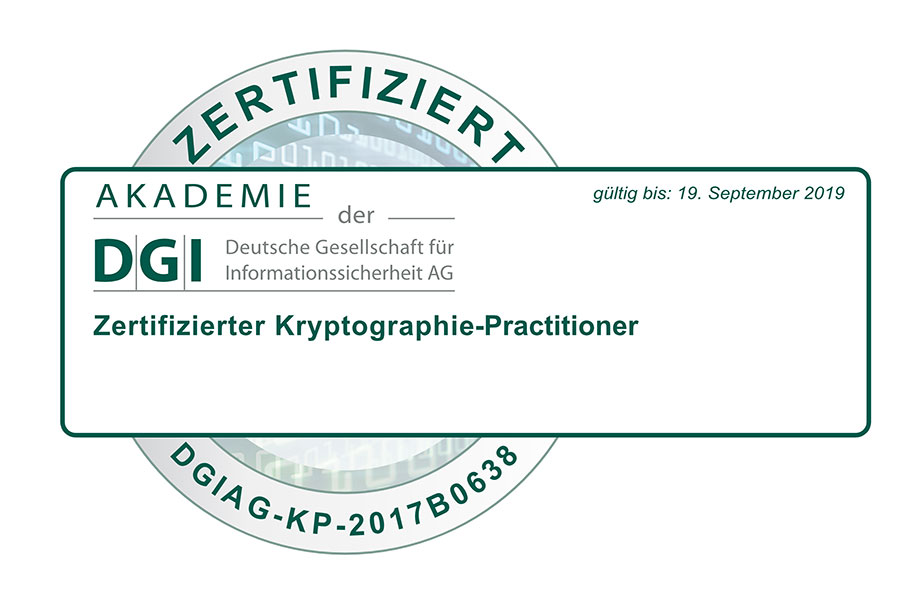As one of the first law firms in Germany, the CLLB has positioned itself as an expert when it comes to legal issues relating to crypto currencies, blockchain & Co. Lawyer István Cocron, as part of our team of experts, has also been honoured by the DGI Academy as a Certified Cryptography Practitioner, has a particularly high level of expertise and can also draw on numerous experiences in this field as a speaker at various national and international blockchain and ICO / STO events.
Our CLLB team of experts supports companies in all legal questions. We also help you to use the blockchain in compliance with data protection regulations and provide comprehensive legal advice on the new means of payment Bitcoin, Ether, Onecoin, Litecoin, Monero, Ripple, Dash etc.
Navigieren Sie hier direkt zum gewünschten Bereich.
Tax consideration of crypto currencies
Anyone trading in crypto currencies must report any profits or losses to the tax office in order not to be accused of tax evasion by mistake. The Federal Ministry of Finance has already made it clear that every crypto currency is declared as private money and is therefore treated the same for tax purposes as assets such as your own gold bar or vintage car when sold. Income generated with crypto currencies is thus considered other income that must be entered in the tax return in the SO attachment. But not only the pure sale of the crypto currency must be considered fiscally. The following transactions are taxable:
- If the crypto currency is sold or exchanged back into a legal tender, e.g. Euro or Dollar
- When the crypto currency is exchanged for another crypto currency
- When a real good or service is paid for with the crypto currency
As proof for the tax office, the investor should keep a transaction diary which, among other things, records the time and quantity of the crypto currency acquisition. As a legal expert in the field of crypto currencies, we can offer you comprehensive advice on the statutory tax obligations when trading in crypto currencies and will be happy to support you in preparing your tax return.

How the CLLB supports you in legal questions about Bitcoin, Blockchain & Co.
Crypto currencies as financing alternatives are a hotly debated topic in the financial world. In Germany there is still a lack of regulations and companies are quickly confronted with a multitude of unanswered questions:
- How can I implement trading with cryptocurrencies in Germany in a legally secure manner?
- What do I need to consider for tax purposes when selling tokens?
- What rights do investors & investors have after a token purchase?
We advise companies to inform themselves comprehensively about legal issues if they are considering entering the cryptocurrency business.

For this purpose, CLLB Rechtsanwälte has established a team of experts who are, among other things, very familiar with the creation of their own cryptocurrency, or token. Continuous education in this field is a matter of course for us, which is why we use numerous trade fairs & conferences to observe the latest developments in this field and to expand our know-how. Attorney-at-law István Cocron, part of the expert team and founding partner of CLLB, has also been awarded the title of Certified Cryptography Practitioner by the DGI Academy.

Our specialists are always available to provide advice and support on legal issues relating to blockchain and cryptocurrencies. The team already has a wealth of valuable experience and advises numerous companies and start-ups that want to incorporate blockchain into their business model or expand its use.
By the way: If you are looking for software for control reports for Bitcoin and other crypto currencies, we recommend our cooperation partner CryptoTax. With the following affiliate link you get to the registration page: Registrieren für CryptoTax.io

Basics about cryptocurrencies & more
What are cryptocurrencies and what are they?
A cryptocurrency, also called virtual money, is a digital currency whose payment system is mostly decentralized and cryptographically secured. Thus, cryptocurrencies represent an alternative to the classic banking system that is independent of state regulations and exceedingly transparent. The decentralized structure of cryptocurrencies is based on a worldwide network in which every transaction made is stored and made publicly accessible.
There are currently well over 840 cryptocurrencies. The first officially traded since 2009 and probably the best known is Bitcoin with a market share of about 45% (as of June 2017). Since April 2017, the current price has been reaching ever new heights and cracked the $8,000 mark in November 2017 – and the trend is upwards. Besides Bitcoin, Ether, Onecoin, Litecoin, Monero, Ripple and Dash are other well-known representatives of cryptocurrencies.
What exactly is the blockchain?
The blockchain is a kind of decentralized digital „ledger“ that lists all transactions ever made in chronological order. Every cryptocurrency has its own blockchain. It can also be thought of as an endlessly long freight train that is extended further and further with each new entry. With its chronological documentation of all transactions, this „blockchain train“ can be divided into individual „wagons“ called blocks. Each of these blocks in turn consists of a list containing the transactions of this one „wagon“. A block refers to the „wagon“ behind it by means of a „hash value“, which is calculated from the content of the block in front of it. Thanks to this methodology, no one can remove, add or change a „wagon“ or block unnoticed – the security of the blockchain is thus guaranteed.
The blockchain is thus a modern and secure technology for the digital exchange of money and assets and serves as the technical basis for cryptocurrencies, such as Bitcoin and Co. However, due to many open questions, trading and use with digital currencies also involves (legal) risks for private individuals and companies!
What does ICO mean?
ICO is the abbreviation for „Initial Coin Offering“ and is derived from the English Initial Public Offering (IPO). The latter describes the offering of shares on the stock exchange from the holdings of existing shareholders or from a capital increase. While in the „physical“ world, company shares are sold in this way, in the case of virtual cryptocurrencies, the so-called tokens are traded within the framework of the ICO. ICO thus represents an elementary financing model in the world of cryptocurrencies.
Due to the lack of regulations, however, an ICO should be treated with caution and can entail many risks. If in doubt, interested parties should seek detailed advice.
What does STO mean?
STO is the abbreviation for „Security Token Offering“. The STO has evolved from the ICO and can therefore be seen as a future successor to this form of financing. Due to numerous ICO fraud cases and the resulting first bans and prohibition orders of ICOs by BaFin, ICOs have increasingly come under criticism. For this reason, STOs are currently emerging as a subset of the umbrella term ICO as a safer alternative. While with an ICO, investors have nothing „tangible“ in their hands and do not know exactly what will happen to their money, this is not the case with an STO. The investment in the context of an STO is conceptually a tokenized right, similar to a security, such as shares, bonds or profit participation in the form of profit participation rights,- only in digital form and in connection with blockchain technology. BaFiN therefore also speaks of security-like tokens (WPÄ) in this context. At present, work is also being done in parallel in many countries on the establishment of corresponding STO Exchanges, since almost exclusively utility tokens and cryptocurrencies can be traded on the existing crypto exchanges.
How do I conduct an ICO or STO?
Anyone who decides to carry out an ICO or STO must consider a number of aspects that need to be clarified beforehand. The following is a rough explanation of what you need to consider when dealing with an ICO or STO:
- security tokens
- utility tokens
- asset tokens
- currency tokens
- Description of the technology used
- Description & introduction of the concept team
- Project Description & Solutions
- Identification & handling of risk factors
- Information on the technical system architecture
- Current market data & estimates for market growth
- Requirements for the publication of the tokens and their subsequent rights of use
- roadmap
- List of team members, consultants and partner companies
- disclaimer
- Product or project description
- Description of the token and the platform used
- Presentation of the team and the partners
- Explanation of the roadmap
About Lawyer István Cocron
István Cocron is a specialist in advising start-ups and companies, in corporate and investment law, and in representing policyholders. He has extensive forensic experience and has handled several major cases for investors and consumers from all over the country.
Attorney Cocron has also been dealing with the latest developments in the field of IT for several years. In particular, he has a particularly high level of expertise in the topics of blockchain & cryptocurrencies and, in the course of this, has been awarded the title of Certified Cryptography Practitioner by the DGI Academy.
He has many years of experience in the field of national and international enforcement, is a member of several creditors‘ committees as well as national and international associations of lawyers. Attorney Cocron is a founding partner of the law firm CLLB Rechtsanwälte.







